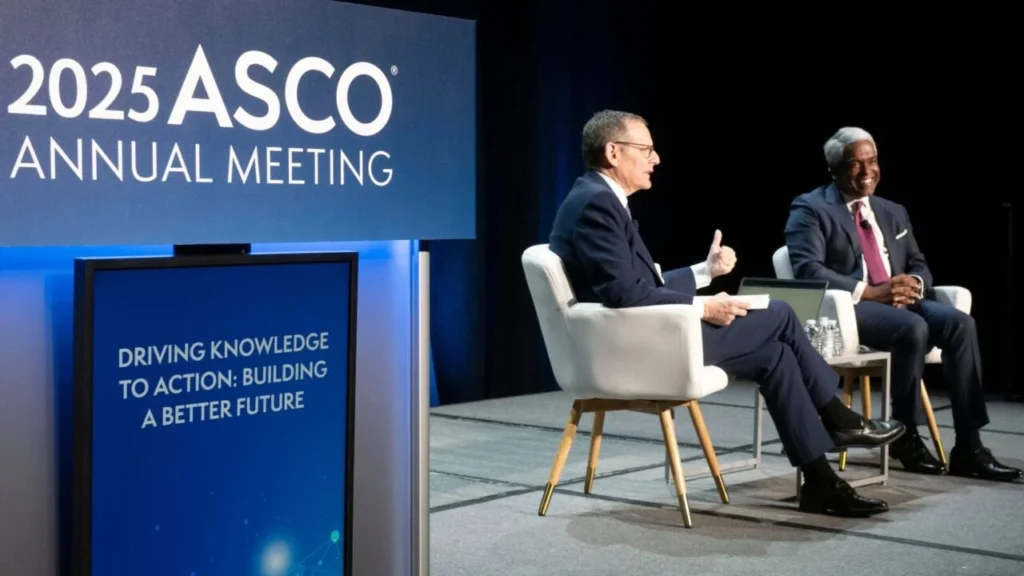Landmark ATOMIC trial shows combining immunotherapy and chemo improves outcomes for colon cancer patients with mismatch-repair deficiency
Landmark ATOMIC trial shows combining immunotherapy and chemo improves outcomes for colon cancer patients with mismatch-repair deficiency

A major development in colon cancer treatment was announced at the American Society of Clinical Oncology (ASCO) 2025 meeting. Results from the Phase III ATOMIC trial (also known as A021502) show that adding the immunotherapy drug atezolizumab to standard chemotherapy significantly reduces the risk of relapse in patients with stage III colon cancer who have deficient mismatch repair (dMMR).
This is a particularly important subgroup of patients. Deficient mismatch repair means that cancer cells cannot properly repair errors in their DNA. While this abnormality can sometimes make tumors more sensitive to immunotherapy, patients with stage III dMMR colon cancer still face high risks of relapse after surgery. Until now, treatment options following surgery were limited, with chemotherapy being the mainstay despite only partial effectiveness.
The ATOMIC trial enrolled more than 700 patients across the United States and Germany. All participants had undergone surgery to remove stage III colon cancer. They were then randomly assigned to receive standard chemotherapy with FOLFOX (a combination of folinic acid, fluorouracil, and oxaliplatin) alone, or FOLFOX combined with atezolizumab. In the combination arm, patients continued atezolizumab as a maintenance therapy after completing chemotherapy.
The results were striking. The addition of atezolizumab reduced the risk of disease recurrence or death by 50 percent compared with chemotherapy alone. At three years, patients who received the combination therapy had nearly half the chance of relapse or mortality compared to those who only received FOLFOX. This is the first large-scale trial to demonstrate that adjuvant immunotherapy can offer such a meaningful survival benefit for this patient population.
Equally important is the safety profile. Side effects observed with the combination were consistent with what is already known for chemotherapy and immune checkpoint inhibitors. Patients experienced the expected toxicities of FOLFOX, including neuropathy and low blood counts, along with the immune-related side effects that can accompany atezolizumab. However, there were no new or unexpected safety concerns, which supports the feasibility of adding immunotherapy in this setting.
The impact of these findings could be transformative. Stage III colon cancer is one of the most commonly diagnosed cancers worldwide, and a significant proportion of cases show mismatch repair deficiency. For decades, oncologists have sought more effective adjuvant therapies to reduce relapse risk after surgery. The ATOMIC trial provides the strongest evidence yet that an immunotherapy-chemotherapy combination can fill that gap.
Clinicians will now begin considering whether this combination should become the new standard of care for patients with dMMR stage III colon cancer. If widely adopted, the approach could spare thousands of patients from relapse and potentially improve long-term survival rates.
Experts note that further follow-up will be crucial to confirm the durability of the benefit. It remains important to see whether the risk reduction holds beyond three years, and whether overall survival also improves significantly. Long-term monitoring will also help ensure that any late-emerging side effects are properly understood.
Nonetheless, the ATOMIC trial marks a pivotal moment. For the first time, oncologists have robust evidence that combining immunotherapy with chemotherapy after surgery can dramatically cut relapse risk in a high-risk group of colon cancer patients. This breakthrough could influence treatment guidelines globally and offer new hope to patients who previously had few effective options beyond surgery and chemotherapy alone.
Keep in touch with our news & offers